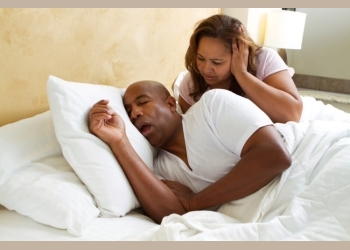
1. You spend most of your day sitting at a desk.

You may be shortening your pelvic muscles, which can lead to pelvic pain and make it harder to orgasm later on, says marriage and sex therapist Kat Van Kirk, Ph.D. "Some people may notice these issues after a few months of sitting too long," she explains, "while it may take years for others to develop symptoms." To prevent this, get up every half-hour to hour during your work day. If you can snag a private space, stretch your hip flexors—the muscles on the inside of your hip bones—with moves like back bends, squats and butterfly stretches.
2. You wear high heels.
 According to Eden Fromberg, D.O., of SoHo OBGYN in New York City, sporting stilettos for any amount of time has detrimental, deforming effects on your pelvic floor and pelvis, as well as your psoas muscles, which connect with muscles and nerves that lead to your pelvic floor, genitalia and related organs. "When your psoas muscles are sticky and tense due to prolonged high heel wear, they can't transmit the arousal message necessary for orgasm," Dr. Fromberg explains. In other words, if they're not in good shape, climaxing is less likely.
According to Eden Fromberg, D.O., of SoHo OBGYN in New York City, sporting stilettos for any amount of time has detrimental, deforming effects on your pelvic floor and pelvis, as well as your psoas muscles, which connect with muscles and nerves that lead to your pelvic floor, genitalia and related organs. "When your psoas muscles are sticky and tense due to prolonged high heel wear, they can't transmit the arousal message necessary for orgasm," Dr. Fromberg explains. In other words, if they're not in good shape, climaxing is less likely.3. You're drinking too much booze and 4. not enough water.

A body needs plenty of H2O to orgasm, explains Dr. Fromberg. "The arousal tissue that extends into the connective tissue system is comprised of collagen, elastin and relaxin." For the tissue to work its magic, it needs to slide and glide, and it can't do so without fluid, says Dr. Fromberg. So drink up, especially after having cocktails, since alcohol actually dries out your body.
5. Your medication is interfering.


"Typically, blood pressure medications, birth control pills and antidepressants are the main culprits," Dr. Van Kirk says. If a side effect of your drugs is a spike in your prolactin levels—a protein that reduces libido, commonly produced in postpartum women so that they don't get pregnant again too quickly—this could also be part of the problem. Plus, "antihistamines can reduce your ability to self-lubricate and make sex uncomfortable," adds Dr. Van Kirk, so you'll probably need lube to prevent pain and get closer to pleasure.
6. Your partner hasn't figured out how to "work it" yet.

"It's not you, it's him" just may be true in your case. Since every woman's body parts are all shaped slightly differently, motions and angles that pleasure some women just don't do it for others, according to Dr. Van Kirk. If he's not hitting the right spots, let him know. "Communicate what works for you and what doesn't," suggests Dr. Van Kirk. "Sometimes a groan or a touch of the hand can make all of the difference."
7. You're not making noise.

Being vocal during sex has been proven to work wonders, says relationship expert and author of Screwing the Rules, Laurel House. If you're being quiet, whether you're trying not to wake the kids or because you're self-conscious about how you'll sound, you're lowering your chances of getting off. "It will allow you to orgasm longer, harder and more often," House insists. Not into that? Heighten the sensory experience of sex this way instead: "Take in the feeling of skin on skin, enjoy the pressure and weight of his body pressing down on yours," House says. Embracing the full experience will help you reap the full benefits, she adds.
8. You're not masturbating often enough.

As it turns out, how frequently you're pleasuring yourself can directly affect your chances of reaching orgasm when you're with your partner. Why? Dr. Van Kirk says that a woman's ability to fantasize and use her imagination during masturbation can help her to be more orgasmic. To up your chances of achieving orgasm with a partner, Jenny Block, author of O Wow: Discovering Your Ultimate Orgasm, recommends masturbating at least three times a week. "Orgasm breeds orgasm," she says.
9. Your oxytocin levels are too low.

The "feel-good" or "love" hormone goes hand-in-hand with orgasms. If your body isn't producing enough, it's harder to climax. Your oxytocin levels are likely low if you're anxious or suddenly not up for seeing your friends or family. Thankfully, spending more time with your partner, looking into his eyes, holding his hand and kissing all have been proven to up oxytocin. Have a furry friend? Cuddling with Fido also boosts your levels.
10. You forgot to pee before sex.

If you make a habit of holding it in, you could be setting yourself up for unsatisfying lovemaking. "Some women get into sex and don't realize that they didn't empty their bladders prior," Dr. Van Kirk says. The stimulation of sex plus the urge to go to the bathroom is not a good mix. As Block puts it, "It can be incredibly hard to reach orgasm when your bladder is full because it's hard not to be thinking, 'Don't pee!' the entire time you're supposed to be enjoying yourself." But what if you need to use the bathroom while you're, uh, in the middle of things? Dr. Van Kirk suggests slipping out to dim the lights, light a candle and encourage your partner to masturbate while you quickly take a pee break.











